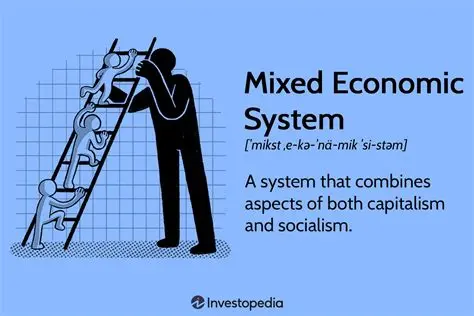1. Definition and Characteristics
2. Advantages and Disadvantages
3. Examples of Mixed Market Economies
4. Current Trends and Future Outlook
Introductory Paragraph:
A mixed market economy is a system where both the private and public sectors play a significant role in economic activities. This type of economic system combines elements of capitalism and socialism, allowing for both individual initiative and government intervention in the market. In this blog post, we will explore the definition and characteristics of a mixed market economy, as well as its advantages and disadvantages. We will also provide examples of countries that have adopted a mixed market economy and discuss the current trends and future outlook for this economic system. Whether you are a student of economics, a business owner, or simply interested in understanding the complexities of modern economies, this post will provide valuable insights into the concept of a mixed market economy.
Frequently Asked Questions
What is a mixed market economy?
A mixed market economy is an economic system that combines elements of both capitalism and socialism. It allows for private ownership of property and businesses, while also allowing for government intervention in certain areas.
What are the advantages of a mixed market economy?
Some advantages of a mixed market economy include a balance between individual freedom and government regulation, opportunities for innovation and entrepreneurship, and a safety net for those in need.
What are the disadvantages of a mixed market economy?
Disadvantages of a mixed market economy can include inequality, potential for government inefficiency, and the challenge of finding the right balance between free market and government intervention.
How does a mixed market economy differ from pure capitalism or socialism?
A mixed market economy differs from pure capitalism in that it allows for some government intervention in the economy, and differs from socialism in that it allows for private ownership of property and businesses.
Can you give an example of a country with a mixed market economy?
The United States is often cited as an example of a country with a mixed market economy, as it allows for both private enterprise and government regulation.
What role does the government play in a mixed market economy?
In a mixed market economy, the government plays a role in providing public goods and services, regulating certain industries, and implementing social welfare programs.
How does a mixed market economy impact individual citizens?
A mixed market economy can impact individual citizens by providing opportunities for economic mobility, but also by potentially creating income inequality and reliance on government assistance.







